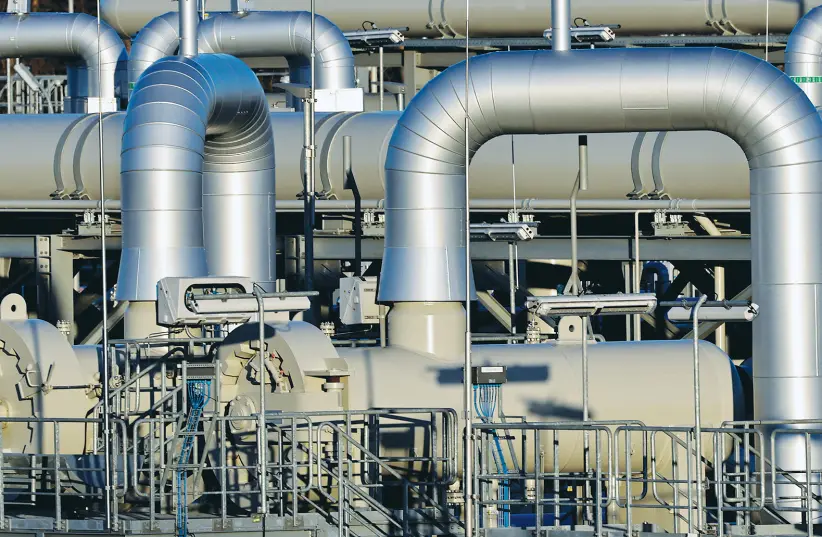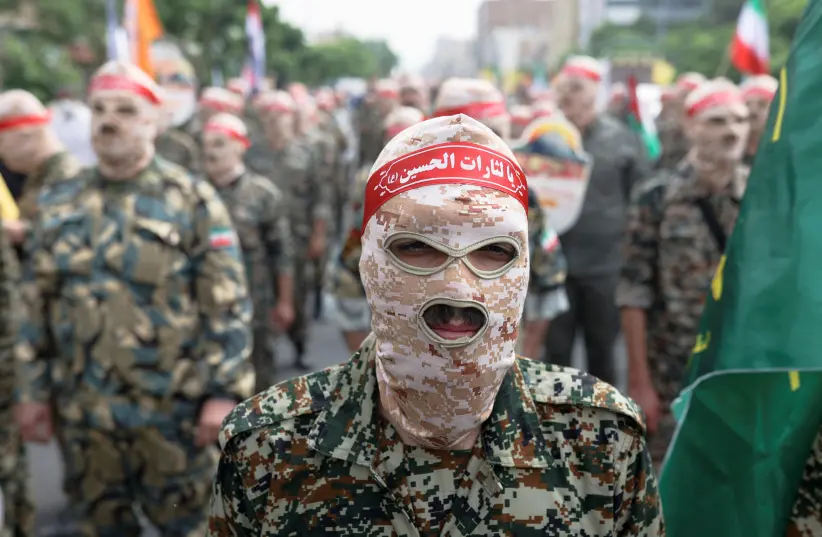
Tehran and Muscat seek to revive Iranian-Omani gas pipeline project
President Ebrahim Raisi will arrive in Muscat on Monday in the first visit to Oman by an Iranian head of state since Haitham bin Tariq Al Said became sultan in January 2020.
“In reiteration of the good neighborliness and advanced relations binding the Sultanate of Oman and the Islamic Republic of Iran, the Iranian President Ebrahim Raisi will pay a visit to Oman this Monday, May 23,” the Omani Royal Court said in a statement.
The two countries’ oil ministers have agreed to renew their long-stalled gas pipeline project, the Islamic Republic News Agency (IRNA) reported on Saturday. The underwater pipeline is planned to transport natural gas from Iran to Oman.
IRNA referred to the renewal of the project as a major diplomatic success for Raisi who has invested great efforts in boosting the Islamic Republic’s relations with neighboring countries.
The Iranian-Omani Gas Pipeline project originated in a memorandum of understanding signed by the two countries’ oil ministers in 2013. It was valued at $60 billion over 25 years as Iran was set to supply Oman with natural gas. Progress cooled off but the effort was renewed in 2016. However, the project was halted due to US pressure on Oman to find a different gas supplier before Washington withdrew from the Iran nuclear deal in 2018.
Seyyed Javad Mousavi Zare, a geopolitical expert and a guest researcher at the Center for Strategic Studies in Tehran, said in an interview with The Media Line that this comes as part of the Iranian president’s strategy.
“Part of the approach of Mr. Raisi’s government in strengthening Iran’s economic diplomacy is focused on energy,” said Mousavi Zare.
On the other hand, he added, “the imposition of sanctions, the uncertain outcome regarding the Joint Comprehensive Plan of Action [JCPOA, the Iran nuclear deal], and also the failure of Iran in attracting foreign investors, especially Pakistan [regarding the export of Iranian gas to the neighboring country], and India [in Iran’s Chabahar port] has caused the project to transport Iranian gas to Oman to be pursued more seriously.”
Oman also has good reasons to pursue this project despite the challenges and geopolitical complications.
Dr. Thomas O’Donnell, a senior global energy markets and geopolitical analyst working in Berlin, told The Media Line that Oman needs natural gas for its domestic market and this promises to be much cheaper than importing liquefied natural gas by ship.
However, O’Donnell continued, “Oman could also become an important transit point for further supply of Iran’s abundant natural gas to India and to other GCC [Gulf Cooperation Council] states. This is of course very appealing to Oman.”
Oman is also motivated to secure a supply of gas from its neighbor by the high international demand for oil and gas caused by the sanctions on Russia, he added.
“Iran has one of the world’s greatest untapped gas-production potentials. It is logical for Oman to be poised to take advantage of this if it becomes possible,” O’Donnell said.
Emmanuel Dupuy, president of the Paris-based Institute for European Perspective and Security (IPSE), said the timing of the renewed efforts on the project was significant.
This project is of urgent necessity as the situation in Ukraine is affecting the Gulf producers of oil, he said. “The pressure is on them to deliver more oil and gas to Western countries, and at the same time that Russia has asked its counterparts and partners to be less cooperative with Western countries,” Dupuy continued.
However, the project could face many complications.
Concerning the timing, O’Donnell argued the uncertainty of the renewal of the JCPOA is also a factor, and he believes that the success of the pipeline project is tied to the success of the nuclear talks in Vienna.
Its chances of success are likely strongly tied to the signing of a new nuclear deal, he said. “If that deal fails, the US can be expected to reinvigorate the isolation of Iran from oil and gas markets. Oman would come under significant pressure to again freeze the project.”
Mousavi Zare added a few more scenarios that could halt the construction of the pipeline.
First, Donald Trump might win re-election in November 2024, he said.
Then there is the Israeli diplomacy and consultations with Omani counterparts in an effort to delay the project and continued pressure from the Saudi royal family to halt the project to curtail the expansion of Iranian influence.
Mousavi Zare added that a lack of technology to construct such a sophisticated pipeline is also a factor.
“Part of the project would take place in the deep parts of the Persian Gulf; Iran may be deprived of the latest global technologies needed to complete it due to the imposition of sanctions,” he said.
The current state of the initiative is not very promising, Mousavi Zare added. “The progress of this project has been very slow so far.”
The water in a large part of the project route is between 500 and 1,000 meters (1,600 and 3,300 feet) deep, and neither party has the technology to build pipelines in deep water, he explained.
“A large part of the seabed route between Iran and Oman has not even been studied, and in order to shorten the pipeline route and prevent it from entering deep waters, it needs to pass through the UAE’s territorial waters. This, of course, has been hindered by the UAE so far,” Mousavi Zare said.
Source: https://www.jpost.com/middle-east

